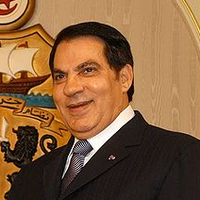The Middle East and North Africa welcomed the New Year with a rare phenomenon: protests in an arc stretching from Algeria to Kuwait, directed against repressive regimes at home rather than a foreign power. The protests are a rare outpouring of pent-up frustration and anger at discrimination and failed economic and social policies as well as corruption in a region that is governed by authoritarian governments intolerant of public criticism.
It is too early to conclude that the protests signal a milestone after which Middle Eastern population groups no longer quietly endure repression and economic deprivation and instead increasingly and publicly challenge their authoritarian leaders. Yet even if they are unlikely to repeat the regime-toppling successes of the velvet revolutions of Eastern Europe, the protests reflect increased chafing at disenfranchisement and lack of opportunity and good governance. Tunisia is witnessing the most-sustained demonstrations against an Arab government in recent history. The New Year's church bombing in Alexandria, Egypt, has sparked a rare public outburst of pent-up Coptic anger. Demonstrators in Algeria this week protested food-price hikes, unemployment and an alleged deterioration of government services. Riots in the southern Jordanian town of Maan erupted following a brawl in which two people were killed. And protests in Kuwait denounced the beating by police of a law professor critical of the government.
The wave of discontent follows a series of underreported economically inspired protests in recent years across North Africa -- including in Tunisia's southern Gafsa mining province in early 2008, in Morocco's impoverished port city of Sidi Ifni in the same year, and in various Egyptian towns over the past several years -- as well as ethnic and political clashes sparked in recent weeks by soccer rivalries in Jordan and Iran. A draw last week in the world's most violent soccer derby between Cairo arch-rivals Al Ahly and Zamalek sparked speculation by Egyptian sports commentators that the government had fixed the match to prevent potential soccer riots that could turn political. Algeria this weekend postponed all national soccer league matches in a bid to prevent games from turning into anti-government protests.

